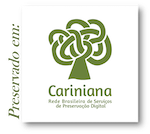A cognitive linguistics approach to the rhetoric of damage control: B.P.’s oil spill and the E.P.A.’s strategy of communication
Resumo
Based on a cognitive-rhetorical approach, the author pursues her line of research as defined in past publications, i.e. applying the tools of cognitive linguistics to analyze the main rhetorical devices at work in American environmental policy discourse (BONNEFILLE, 2012, 2011, 2009, 2008). This article undertakes a discourse analysis of four official documents, in order to shed light on the strategies called upon by official sources to keep the American citizens, as well as the rest of the world, informed about the 2010 oil spill in the Gulf of Mexico and its aftermath. An official site, RestoretheGulf.gov, was created by the Environmental Protection Agency soon after the catastrophe occurred and three of its postings are analyzed here. The fourth document of the corpus corresponds to a confidential email written in May 2010 by Marcia McNutt, head of the scientific team which was dispatched to the Gulf of Mexico by the Department of Interior to evaluate the damage caused by the 2010 oil spill. The email was obtained under the Freedom of Information Act by Greenpeace and, once publicly released, disclosed to the world that the scientific team had been asked by the White House to underestimate the damage. Analyzing the linguistic data in the selected documents enables us to highlight the mechanisms of representation used both by the E.P.A. and by Marcia McNutt and, more broadly, to describe some aspects of the communication strategies at work in the field of environmental issues.
Palavras-chave
Texto completo:
PDFDOI: http://dx.doi.org/10.22168/2237-6321.3.3.1.34-55
Apontamentos
- Não há apontamentos.
Direitos autorais


